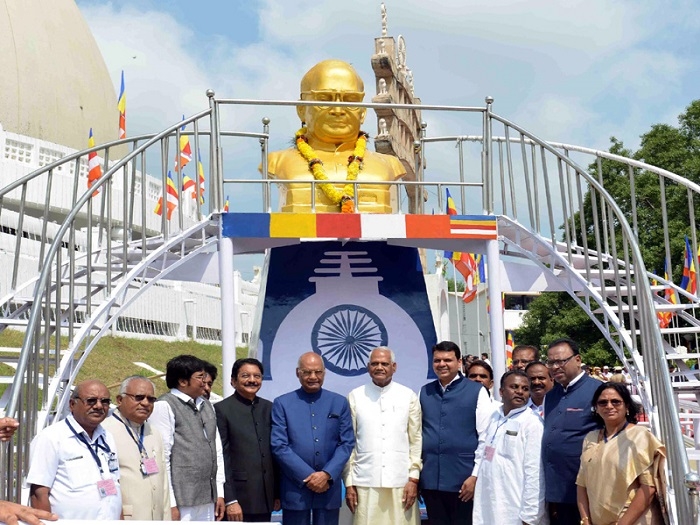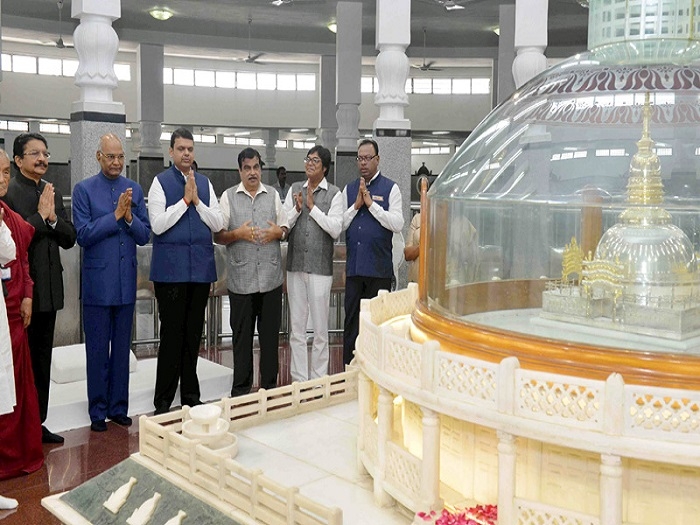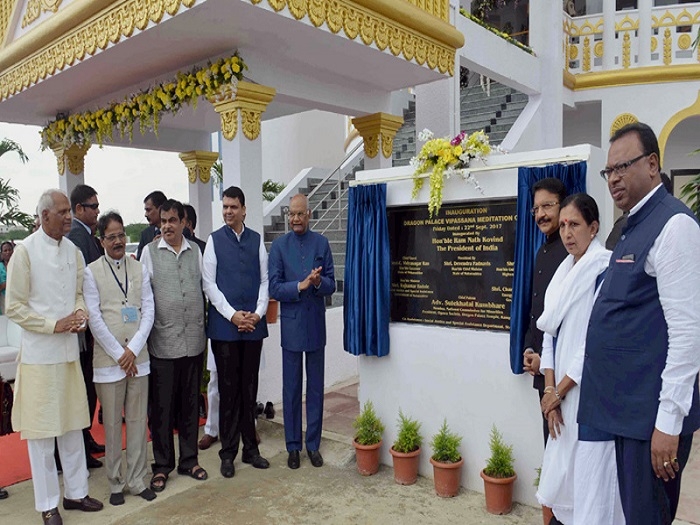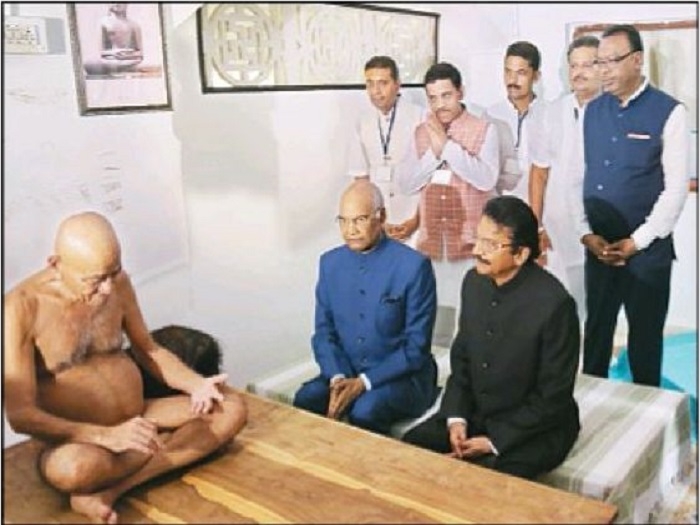Buddhist, Jain sites dominate President’s itinerary in maiden Nagpur visit

Nagpur, Sept 23: President Ram Nath Kovind's maiden Nagpur tour on Friday was marked with his visit to Buddhist and Jain sites in and around Nagpur and the President also made it a point to visit them.
The first amongst such places was Deekshabhumi. Situated in West Nagpur's sprawling fields in Bajaj Nagar, Deekshabhumi is the place where Dr Babasaheb Ambedkar, the architect of our Constitution and pioneer of human equality, embraced Buddhism way back in 1956 along with his thousands of followers. This day which falls on Dusserah festival, is celebrated every year as ‘Dhamma Parivartan Divas. Lakhs of Buddhists come to Nagpur from far and near and pay their respects to this ‘Bodhisattva’ of modern times.
It was but natural for Kovind, who belong to the same 'Dalit' category as Dr ambedkar was, to visit this holy place and pay obeisance to the Late Babasaheb Ambedkar.
Pouring out his emotions in a message he wrote in the Visitor's Book, Kovind expressed: The President wrote: “Param Poojaniya Dr Babasaheb Ambedkar laid the foundation of equality and social revolution here on this sacred land which could lead the Indian society and the entire human society on to the path of progress and development. This pious Deekshabhumi inspires the entire world for sacrifice, peace and humanity. I am deeply satisfied after visiting this place.”
Kovind said that he had nursed two wishes after becoming the President of the country, and those two were fulfilled in a short span of two months. First, he wanted to be amongst the soldiers guarding the borders of our nation braving the vagaries of nature and bullets of the enemies. He went to Leh-Ladakh on 31st August and encouraged the soldiers.

The President said that he wanted to first visit Deekshabhumi as a President of India while visiting Maharashtra. He was also happy to have visited the Dragon Temple in Kamptee and inaugurating the Vipassana Meditation Centre there.
The President arrived in a tight security at Deekshabhumi from the Nagpur Airport and paid respects to Dr Ambedkar's 'asthikalash'. He also paid obeisance to Lord Buddha and noted his feelings in the Visitors' Book.
He was accompanied by Maharashtra Governor Ch Vidyasagar Rao, Union Minister Nitin Gadkari, Chief Minister Devendra Fadanvis, Union Minister Ramdas Athavale, Guardian Minister Chandrashekhar Bawankule, Mayor Nanda Jichkar, President of Dr Babasaheb Ambedkar Smarak Samiti Sadanand Fulzele and Bhante Surai Sasai.
Kovind was felicitated with a present of Dr Ambedkar's book “Buddha and his Dhamma”. The President inspected the dome of the Smarak and Bodhivruksha before garlanding the statue of Dr Ambedkar.
At the Dragon Temple: Another buddhist site the president paid visit to was Dragon Palace temple at Kamptee. Kovind inaugurated the Vipasaana Meditation Centre here build by Ogawa society of Japan that runs this famous temple.
On this occasion the President said that the parliamentary democracy in India today has its roots in the Buddhist philosophy and its influences are found in the Indian constitution also. Dr Ambedkar had incorporated the concepts of equality, fraternity and social justice, brotherhood etc. from the Buddhist philosophy, he said.

The President further said that Vipassana is form of meditation that purifies one's soul and enables one to lead a tension-free life giving a sense of fulfilment. It is now established practice world over and it is nice to see Maharashtra taking a lead in creating awareness about it in the society.
Stating that he had undergone a Vipassana course 26 years ago, the President said that like yoga, Vipassana too cannot be equated with any religion, it is a way to achieve salvation for the human beings. In modern times Vipassana is more of a therapy than a religious pursuit, to lead a happy and content life, the President said.
Visit to Jain Temple: The President also visited a Jain temple near Ramtek and met Jain Muni Vidya Sagarji Maharaj. The President visited the historical Shantinath Digambar Jain temple during the ongoing Sanyam Swarna Mahotsava commemorating the 50th anniversary of initiation of Acharya Vidya Sagarji Maharaj into the Jain sect.

The Jain seer also urged the President to insist on using the name “Bharat” instead of India. “Rashtra ki bhasha Hindi ho, India nahi, Bharat Kaho” he told the President.